With Easter holidays well behind us, it was great to see 15 juniors turn up on this Spring Bank Holiday weekend. We also had 6 adults and 4 juniors on Thursday afternoon enjoying a couple of hours of chess in Ferndown Library. Great stuff!
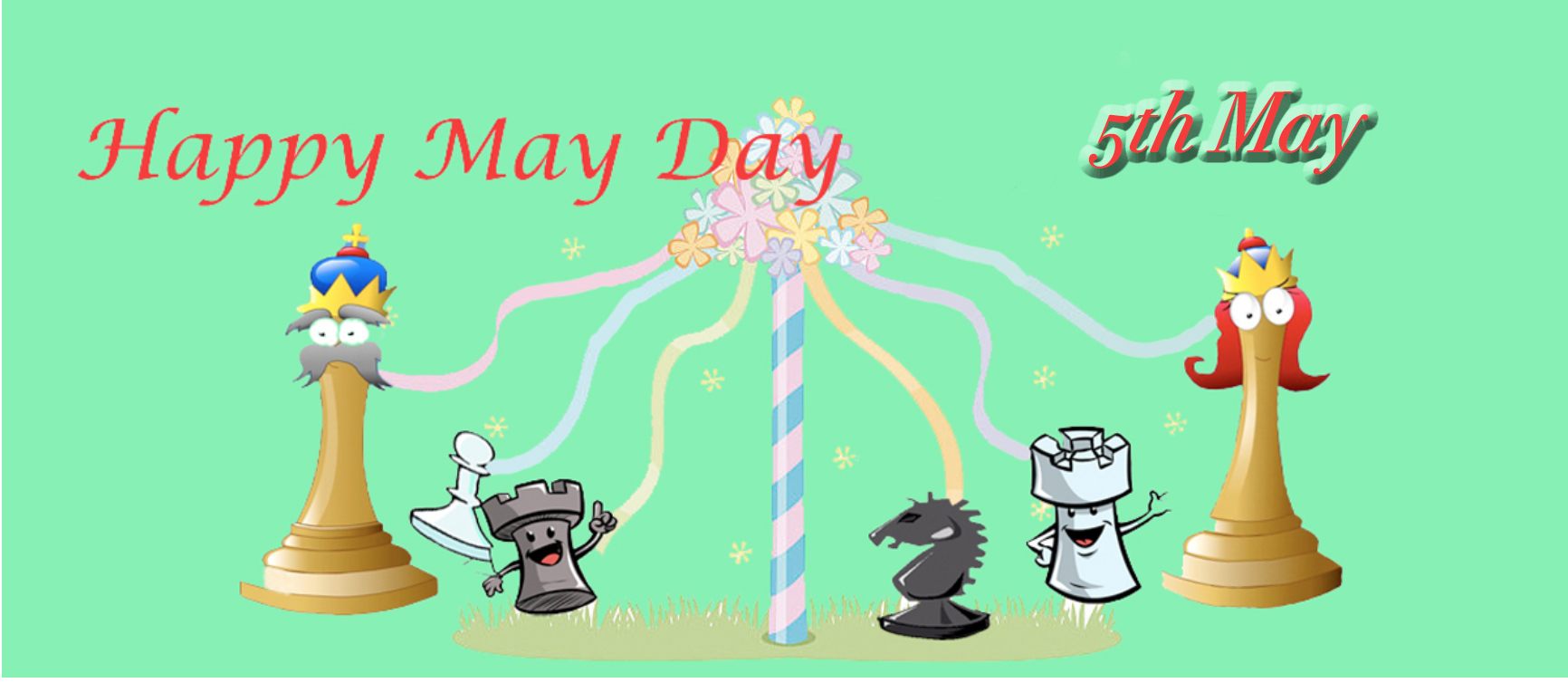
We all sang Happy Birthday to Advik who will be seven on Tuesday and was given a birthday card to enjoy from the Ferndown Chess Club. We also welcome new member Lewis, great to see you and hope you join us on a regular basis. Shlok and Louie had their Spring attendance Certificates presented to them after returning from holiday.
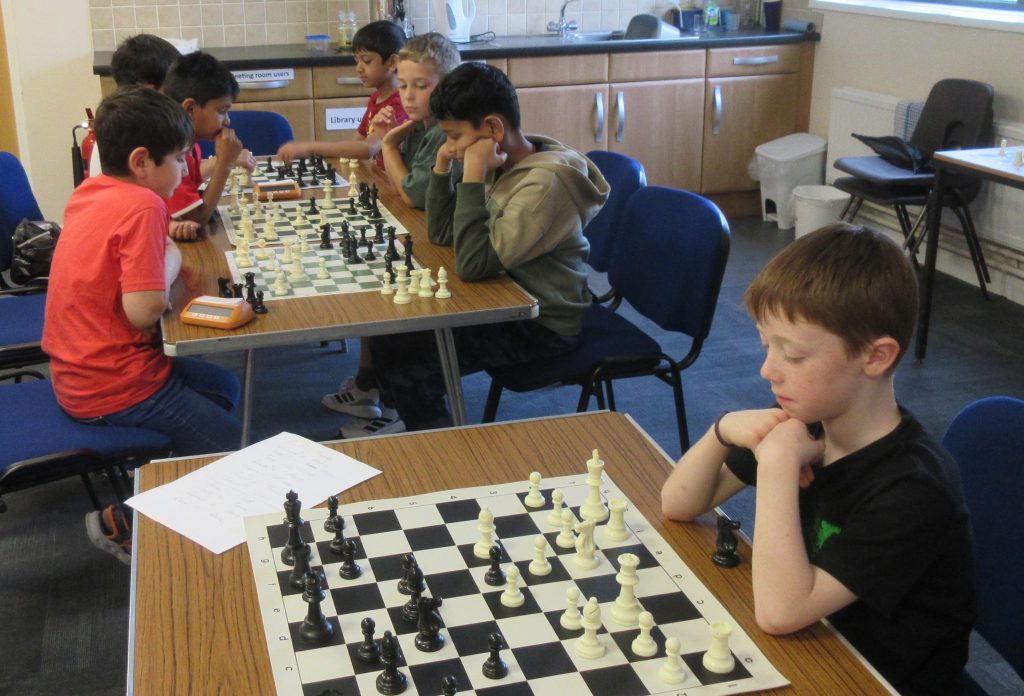
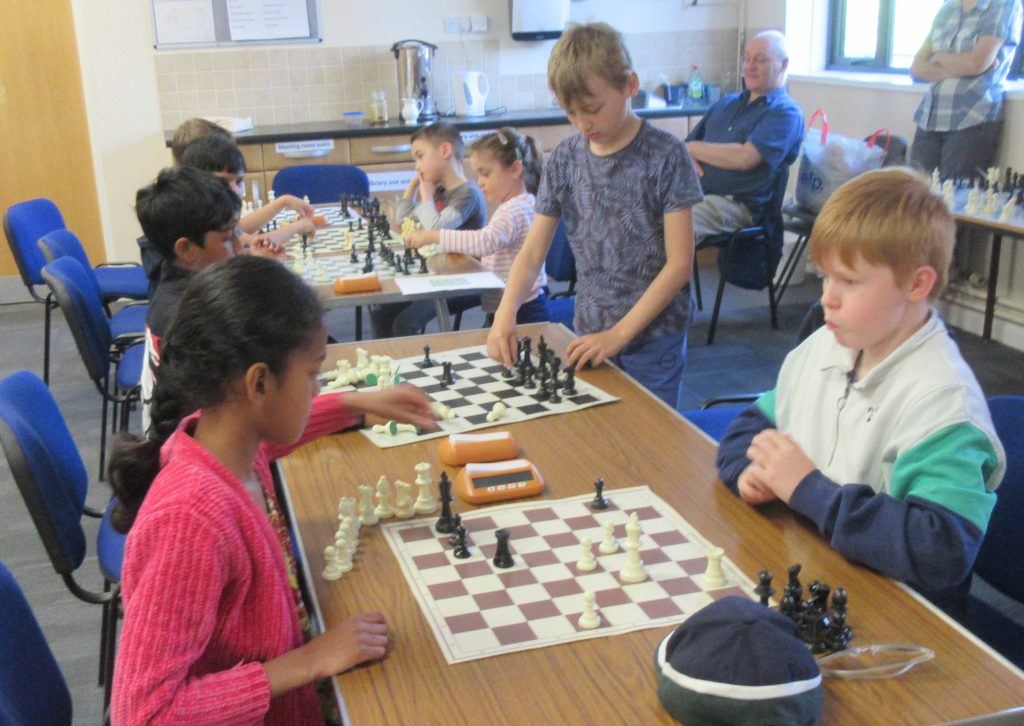
This weeks theme:-
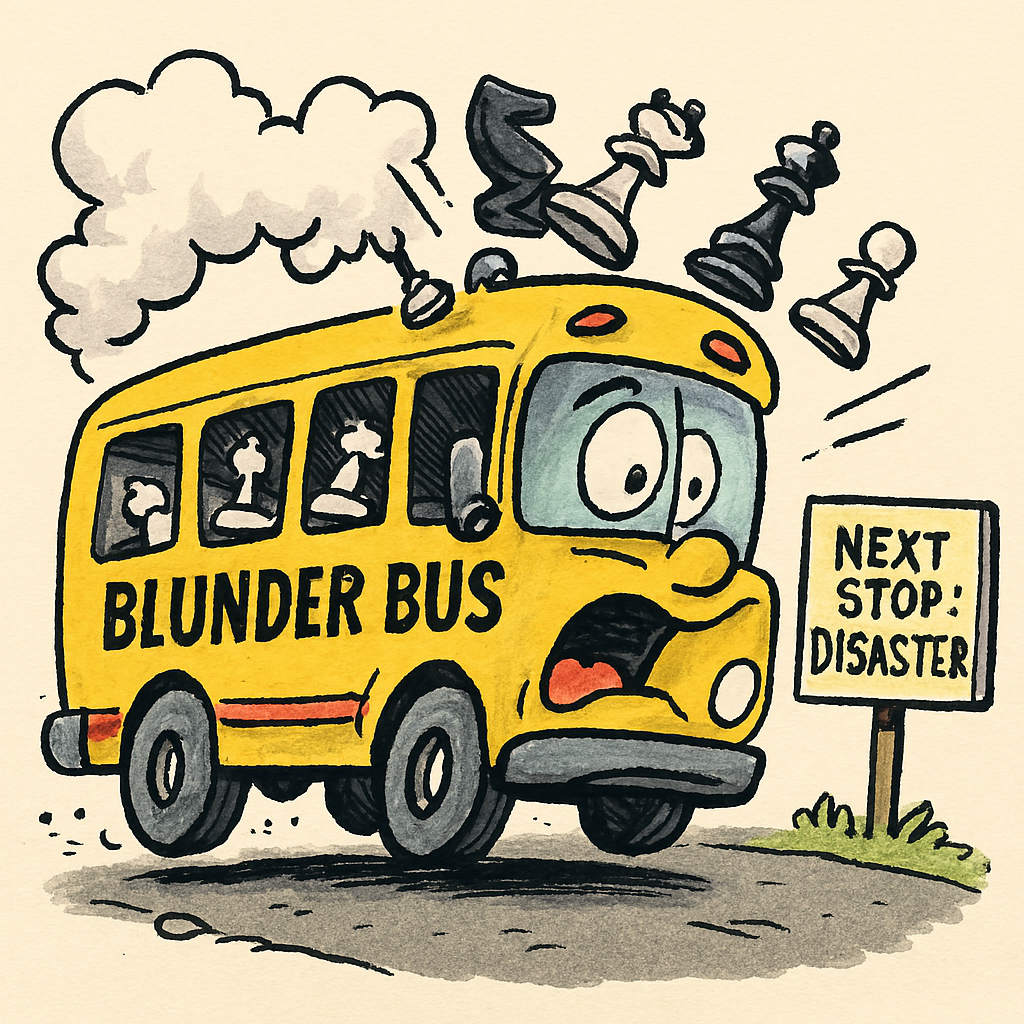
If you’re on the Blunder Bus, get off at the next stop and follow these principles
Too many games are lost because you made a BLUNDER and too many games are won because you’re opponent made a BLUNDER
Would you cross the road without looking BOTH WAYS?
Apply that same principal to your Chess, the most important move in every chess game is the last move your opponent made, the second important move is your next one.
Blunders are obvious mistakes that should be avoidable with a basic understanding of chess. For example, trading a knight for a pawn without gaining any strategic advantage is a clear blunder.
There are two types of blunders: losing a piece unnecessarily and missing an opportunity to capture an opponent’s piece. Most games, especially those played by beginners, are won or lost due to blunders.
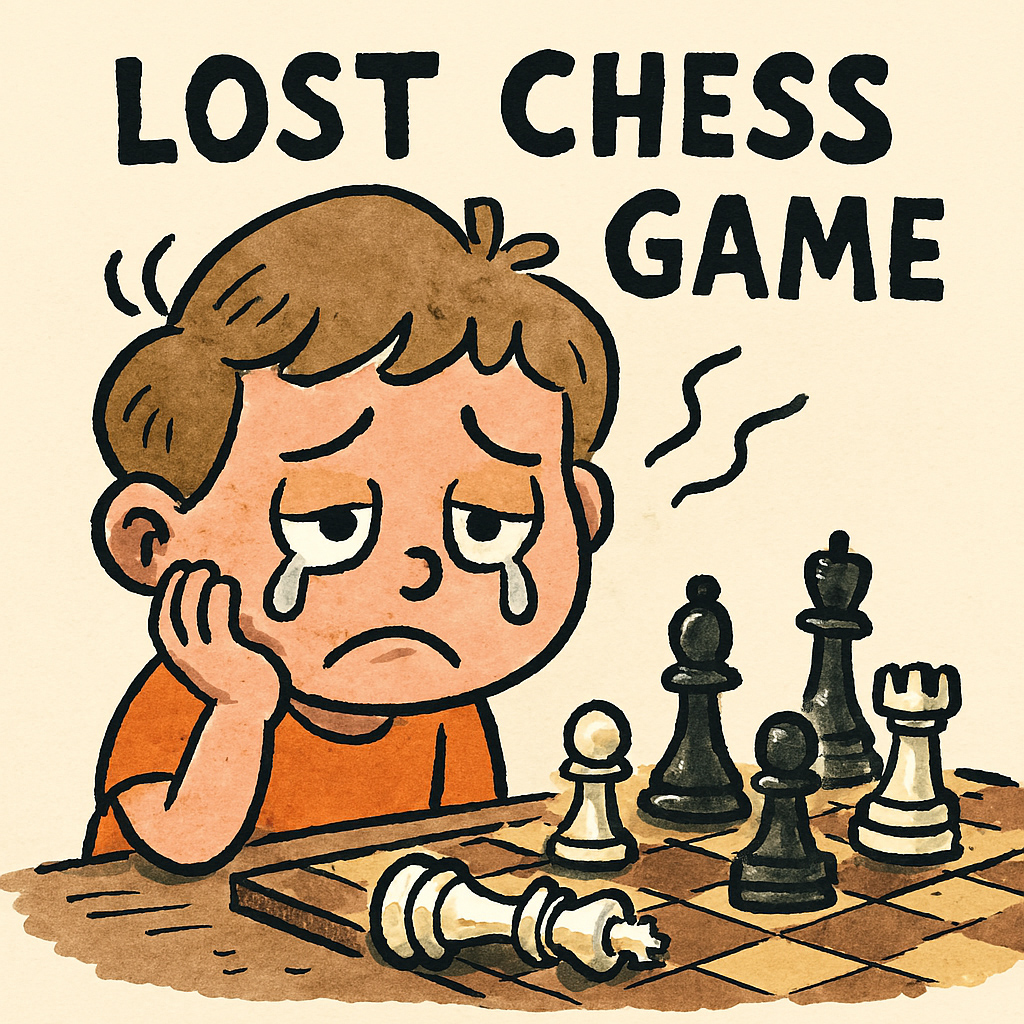
Sit on your hands and ask yourself :- why your opponent made their move and what they are attacking?Every time your opponent moves, you should first determine their intention and what piece, if any, they are threatening. By doing this, you can ensure you defend or move threatened pieces, avoiding unnecessary losses.
Example 1 :-
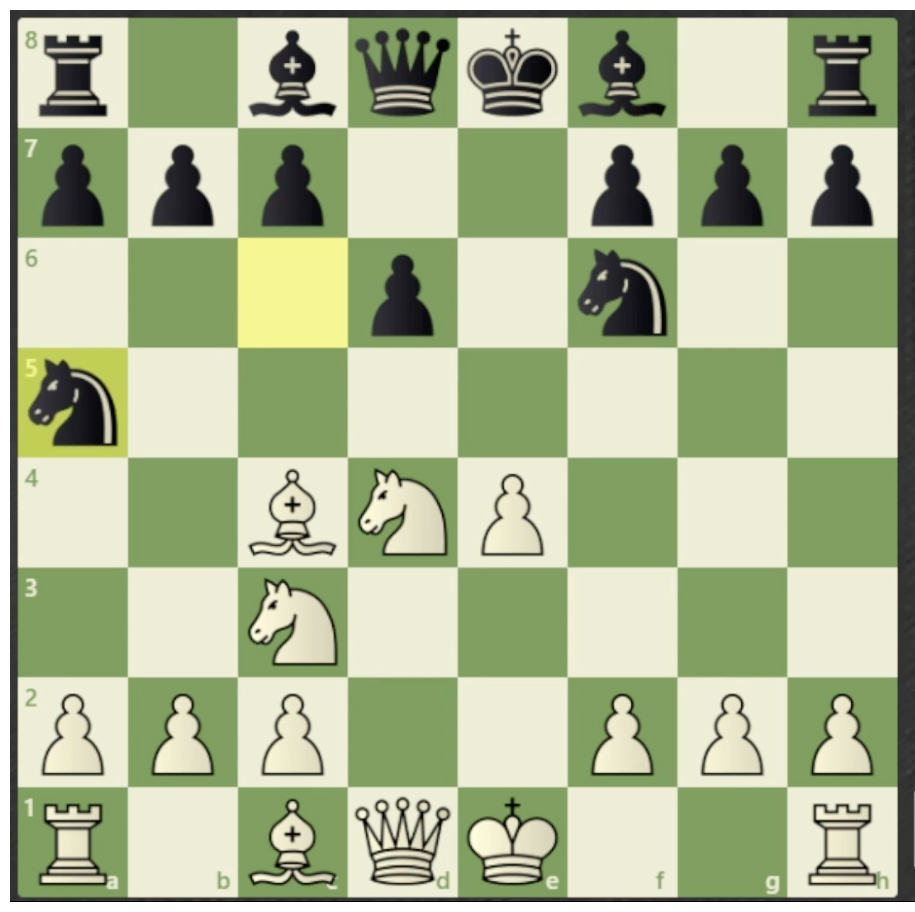
After Black played Na5, white moved their knight on c3 to e2 without realising their Bishop was under attack, which led to a significant blunder. If they had asked themselves why their opponent moved their knight, they would have seen the threat and responded accordingly.
Example 2:-
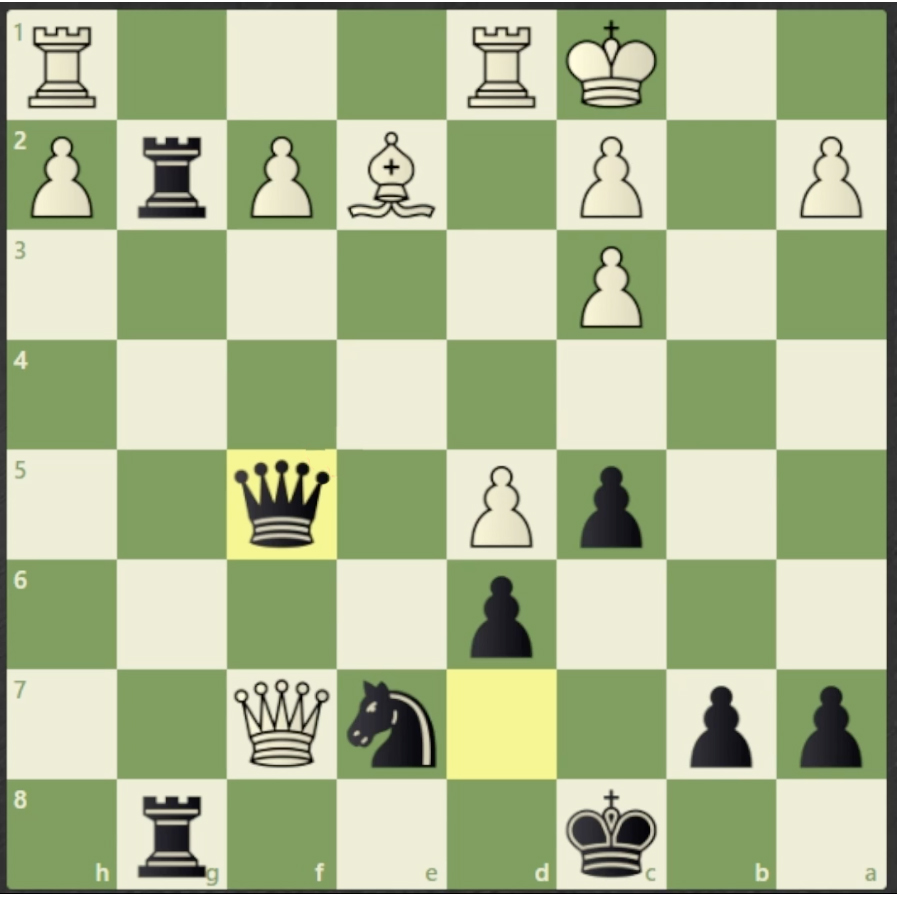
Black moves the Queen to attack f2 pawn, thinking it’s protected by the Knight, but forgets the Queen was protecting the Knight, now White’s Queen takes the knight.
So Look Both Ways !
By consistently applying these two checks and not moving too quickly, analysing your opponent’s moves and ensuring the safety of your own, you can significantly reduce blunders and improve your game. Don’t ‘cross the road’ without looking!
- Check Your Opponent’s Last Move: Check the opponent’s last move to understand its purpose and evaluate if their move is attacking or threatening.
- Check Kings & Queens: The King and Queen are the most significant pieces in the game. Assess if your King is in danger of a checkmate, and determine if you have a potential checkmate on your opponent’s King. Also, check if your Queen or the opponent’s Queen is under threat of capture.
- Check Rooks, Knights, & Bishops: Examine your Rooks, Knights, and Bishops for potential captures or threats. Also, check if you can capture any of your opponent’s Rooks, Knights, or Bishops.
Remember T.R.I.P. – it also helps
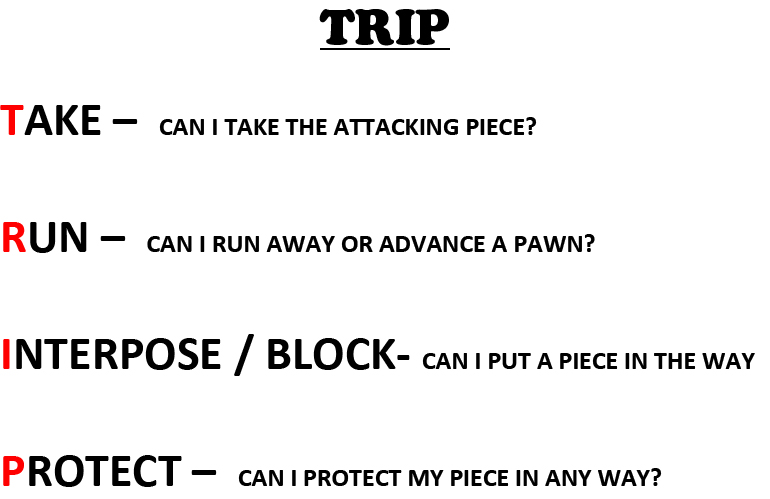
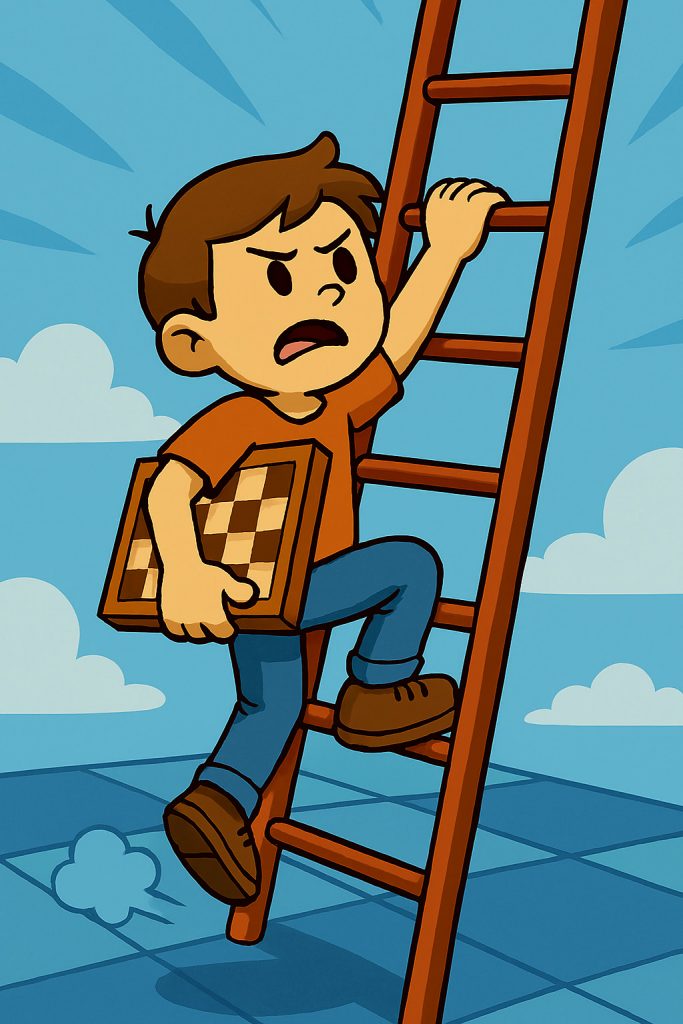
Latest Ladder results and positions
Wins today for Thomas, Maria, Lishanth, Michal, Gagan, Jacob, Shlok, Louie and Advik.
Draws for Toshika, Rowan and Gagan. All this means the ladder now looks like this:-
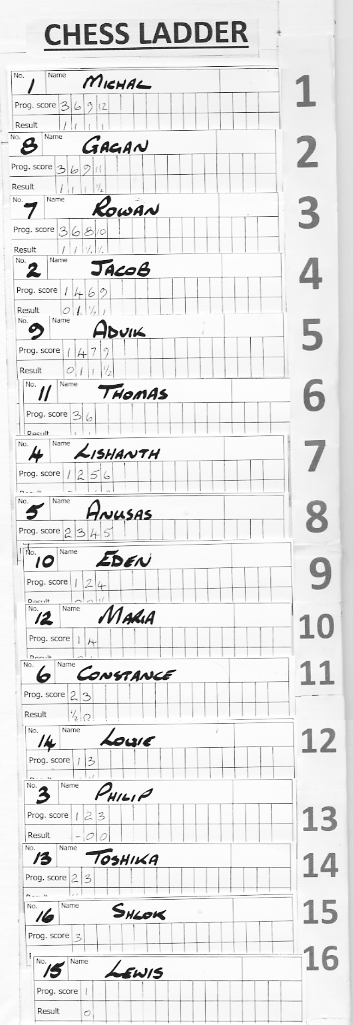
Michal (the paper plane maker) takes a slight lead over Gagan and Rowan, with Jacob and Advik not far behind.
Have a great Bank Holiday weekend
See you all next week
Graham Morris